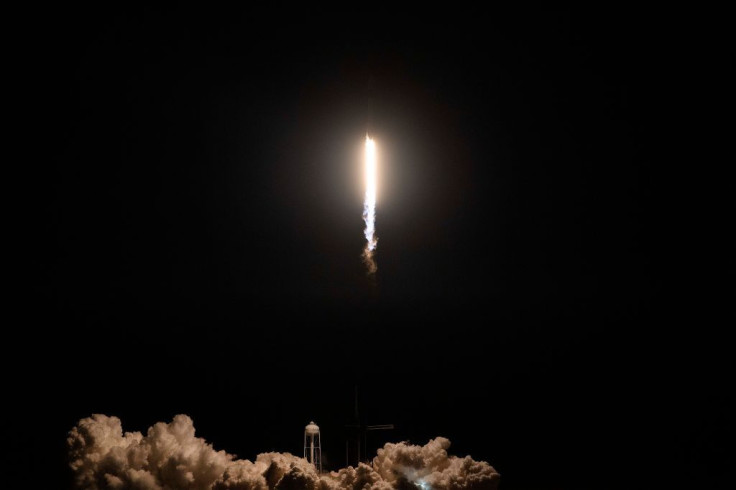Virgin Orbit To Air Launch First Satellite In November

Virgin Orbit, the subsidiary of the Virgin Group, whose business is to launch small satellites (smallsats), says it will likely orbit its first commercial satellite using its unique air-launch system by November.
The company's long-delayed entry into the commercial space race realizes the dream of its founder, Sir Richard Branson, to open a new mode of launching satellites that doesn't rely on large and expensive fixed-site rockets.
In late September, Virgin revealed its plans to officially enter the commercial space race against SpaceX and Blue Origin, among other private spaceflight firms. Virgin Orbit said that after "prepping and practicing" on the ground for a few weeks, it plans to conduct a "captive carry flight" with "Cosmic Girl" in a few weeks. To follow will be Virgin Orbit's very first orbital launch.
"In about six weeks, eight weeks, we will be firing the engines on the next drop test and heading at eighteen and a half thousand miles per hour around the Earth in orbit, beginning to drop off satellites," Branson said in statements made mid-September.
This means the first aerial launch for Virgin Orbit will probably take place from late October to mid-November.
Should this test flight prove successful, Virgin Orbit will rapidly accelerate the number of launches thereafter. The company vows multiple "launches to space later this year."
Known customers for these launches include the U.S. Air Force and satellite communications start-up OneWeb.
Analysts said Virgin Orbit is expected to charge from $10 million to $12 million to launch a 500 kg payload into Low Earth Orbit (LEO). This sum works out to a launch cost of $20,000 per kilo.
That sound eminently reasonable except for the fact SpaceX now offers a launch cost for the same payload weight that's a fourth of this price. In a move aimed at low-cost launch providers like Virgin Orbit, SpaceX in September slashed the price on its small satellite rideshare program to just $5,000 per kg.
How Virgin Orbit responds to this potentially lethal price challenge from SpaceX might well affect its future viability as a commercial spaceflight business.
Virgin Orbit was to have launched the first test flight of its revolutionary LauncherOne two-stage orbital launch vehicle in the first quarter of 2019. In late October 2018, Virgin Orbit attached a prototype LauncherOne to a modified Boeing 747 carrier aircraft named Cosmic Girl for the first time at an airport in Long Beach, California.
LauncherOne stands 16 meters tall and weighs 26,000 kg. It’s a two-stage air launch-to-orbit rocket that will launch smallsats into Sun-synchronous orbits (SSOs) following air launch from a carrier aircraft such as Cosmic Girl at high altitude.
SSOs are suitable for CubeSats and small payloads. LauncherOne can loft a 360 kg payload to 500 km SSO and a 500 kg payload to 230 km SSO.
Published by Medicaldaily.com



























